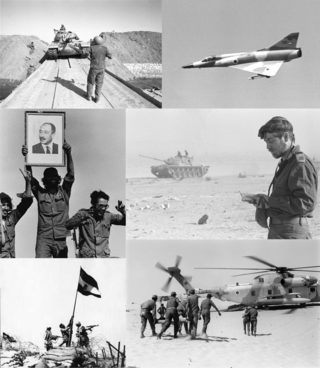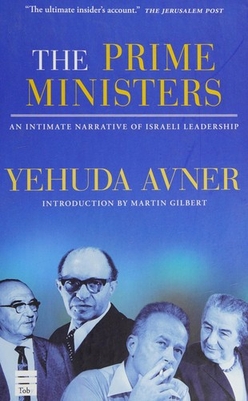Background
The Israeli government had long encouraged European Jewish refugees to immigrate to Israel. After many of the Jews displaced by the Holocaust had emigrated to Israel, the Russian Jewish population, the last source of Ashkenazi Jews, who were facing increasing oppression within the Soviet Union, became an important population encouraged to emigrate to Israel. [1] In the wake of the Six-Day War in 1967, the Soviet Union broke off diplomatic relations with Israel. This stirred up Zionist feelings among some Soviet Jews, the majority of whom were assimilated and non-religious.
A mass emigration was politically undesirable for the Soviet regime. As increasing numbers of Soviet Jews applied to emigrate to Israel in the period following the Six-Day War, many were formally refused permission to leave. After the Dymshits–Kuznetsov hijacking affair in 1970 and the crackdown that followed, strong international condemnations caused the Soviet authorities to increase the emigration quota. From 1960 to 1970, only 4,000 people left the Soviet Union; in the following decade, the number rose to 250,000. [2]
Many of these Jews passed through the transit center located at the Schönau Castle in Austria. The Castle was used by the Austrian government as a transit camp for Soviet Jews who had just been permitted to leave the Soviet Union prior to emigrating to the West. [3]

The Yom Kippur War, also known as the Ramadan War, the October War, the 1973 Arab–Israeli War, or the Fourth Arab–Israeli War, was an armed conflict fought from 6 to 25 October 1973, between Israel and a coalition of Arab states led by Egypt and Syria. The majority of combat between the two sides took place in the Sinai Peninsula and the Golan Heights—both of which had been occupied by Israel in 1967—with some fighting in African Egypt and northern Israel. Egypt's initial objective in the war was to seize a foothold on the eastern bank of the Suez Canal and subsequently leverage these gains to negotiate the return of the rest of the Israeli-occupied Sinai Peninsula.

Yom Kippur is the holiest day of the year in Judaism and Samaritanism. It occurs annually on the 10th of Tishrei, corresponding to a date in late September or early October.

Golda Meir was an Israeli politician who served as the fourth prime minister of Israel from 1969 to 1974. She was Israel's first and only female head of government and the first in the Middle East.
This is a list of notable events in the development of Jewish history. All dates are given according to the Common Era, not the Hebrew calendar.

Tishrei or Tishri is the first month of the civil year and the seventh month of the ecclesiastical year in the Hebrew calendar. The name of the month is Babylonian. It is a month of 30 days. Tishrei usually occurs in September–October on the Gregorian calendar.
The history of the Israel Defense Forces (IDF) intertwines in its early stages with history of the Haganah.

Bruno Kreisky was an Austrian social democratic politician who served as Foreign Minister from 1959 to 1966 and as Chancellor from 1970 to 1983. Aged 72 at the end of his chancellorship, he was the oldest Chancellor after World War II. His 13-year tenure was the longest of any Chancellor in republican Austria.

Aliyah is the immigration of Jews from the diaspora to, historically, the geographical Land of Israel or the Palestine region, which is today chiefly represented by the State of Israel. Traditionally described as "the act of going up", moving to the Land of Israel or "making aliyah" is one of the most basic tenets of Zionism. The opposite action — emigration by Jews from the Land of Israel — is referred to in the Hebrew language as yerida. The Law of Return that was passed by the Israeli parliament in 1950 gives all diaspora Jews, as well as their children and grandchildren, the right to relocate to Israel and acquire Israeli citizenship on the basis of connecting to their Jewish identity.

Yonatan "Yoni" Netanyahu was an Israeli military officer who commanded Sayeret Matkal during the Entebbe raid. The raid was launched in response to the 1976 hijacking of an international civilian passenger flight from Israel to France by Palestinian and German militants, who took control of the aircraft during a stopover in Greece and diverted it to Libya and then to Uganda, where they received support from Ugandan dictator Idi Amin. Though Israel's counter-terrorist operation was a success, with 102 of the 106 hostages being rescued, Netanyahu was killed in action – the only Israeli soldier killed during the crisis.

As-Sa'iqa officially known as Vanguard for the Popular Liberation War - Lightning Forces, is a Palestinian Ba'athist political and military faction created and controlled by Syria. It is linked to the Palestinian branch of the Syrian-led Ba'ath Party, and is a member of the broader Palestine Liberation Organization (PLO), although it is no longer active in the organization. Its Secretary-General is Dr. Mohammed Qeis.

Simcha Dinitz was an Israeli statesman and politician. He served as Director General of the Prime Minister's office and political advisor to Prime Minister Golda Meir from 1969 to 1973, before becoming the Israeli Ambassador to the United States from 1973 to 1979. He had an overlapping appointment as the Non resident Ambassador to the Bahamas During the 1980s he was elected to the Knesset.

The Soviet Union played a significant role in the Arab–Israeli conflict as the conflict was a major part of the Cold War.

Machon Meir is a religious Zionist outreach organization and yeshiva situated in the Jerusalem neighborhood of Kiryat Moshe, close to Givat Shaul. Machon Meir is one of the larger outreach organization in Israel, and is strongly associated with nationalist politics and the settler movement.

The 1970s Soviet Union aliyah was the mass immigration of Soviet Jews to Israel after the Soviet Union lifted its ban on Jewish refusenik emigration in 1971. More than 150,000 Soviet Jews immigrated during this period, motivated variously by religious or ideological aspiration, economic opportunity, and a desire to escape anti-Semitic discrimination.

Israeli casualties of war, in addition to those of Israel's nine major wars, include 9,745 soldiers and security forces personnel killed in "miscellaneous engagements and terrorist attacks", which includes security forces members killed during military operations, by fighting crime, natural disasters, diseases, traffic or labor accidents and disabled veterans whose disabilities contributed to their deaths. Between 1948 and 1997, 20,093 Israeli soldiers were killed in combat, 75,000 Israelis were wounded, and nearly 100,000 Israelis were considered disabled army veterans. On the other hand, in 2010 Yom Hazikaron, Israel honored the memory of 22,684 Israeli soldiers and pre-Israeli Palestinian Jews killed since 1860 in the line of duty for the independence, preservation and protection of the nation, and 3,971 civilian terror victims. The memorial roll, in addition to IDF members deceased, also include fallen members of the Shin Bet security service, the Mossad intelligence service, the Israel Police, the Border Police, the Israel Prisons Service, other Israeli security forces, the pre-state Jewish underground, and the Jewish Brigade and the Jewish Legion.
Events in the year 1973 in Israel.

The Prime Ministers: The Pioneers is a 2013 American documentary film about former Israeli prime ministers, directed by Richard Trank. It was based on the book The Prime Ministers: An Intimate Narrative of Israeli Leadership written by Yehuda Avner, a former Israeli diplomat and speechwriter to Levi Eshkol, Golda Meir, Yitzhak Rabin, Menachem Begin and Shimon Peres. Moriah Films, a division of Simon Wiesenthal Center produced it.

The Prime Ministers: An Intimate Narrative of Israeli Leadership is a 2010 book written by Yehuda Avner and published by Toby Press. It documented events related to 4 Israeli prime ministers—Levi Eshkol, Golda Meir, Yitzhak Rabin and Menachem Begin. It was first published in Israel on 15 March 2010 and a wider publication was done on 1 September 2010. The book was well received by critics and was one of the finalists for the 2010 National Jewish Book Awards. In 2013, Moriah Films, the film division of the Simon Wiesenthal Center produced a two-part documentary based on the book that features Avner as the narrator, and Hollywood actors as the voices of Israel's prime ministers.

Cuba–Israel refers to the current and historical relations between the Republic of Cuba and the State of Israel. Both nations have not had official diplomatic relations since 1973. Israel maintains an Interest Section in the Canadian embassy in Havana. Cuba is currently the only country in the Americas that does not recognize Israel as a sovereign state; a few other countries in the Western Hemisphere such as Belize, Bolivia, Colombia and Venezuela have suspended ties with Israel, but nevertheless continue to accord it diplomatic recognition.















